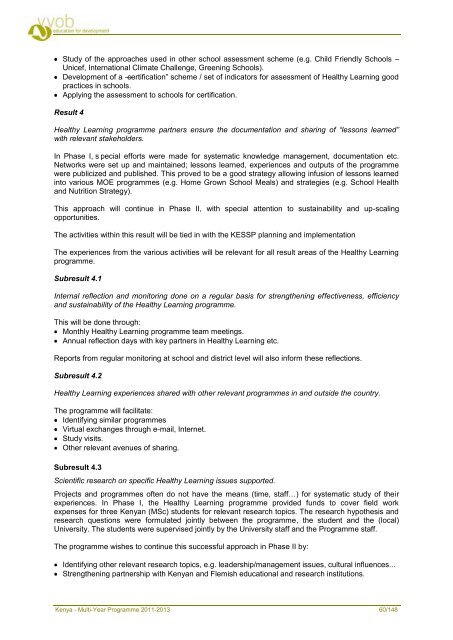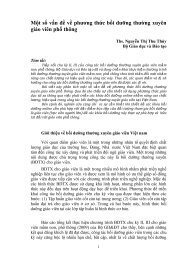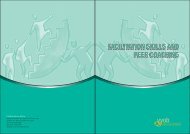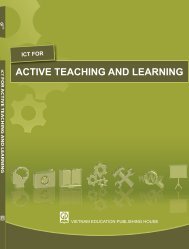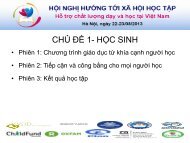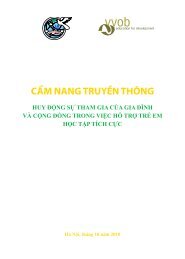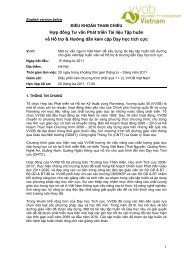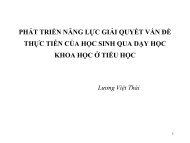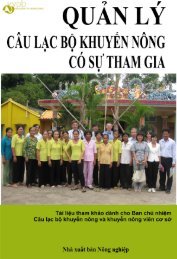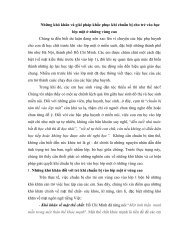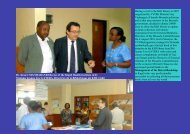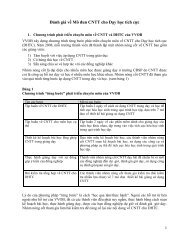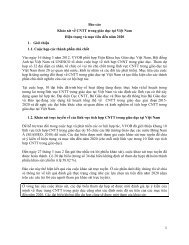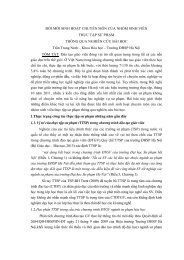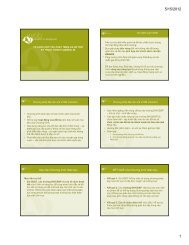Kenya Multi-Year Programme 2011-2013 - VVOB
Kenya Multi-Year Programme 2011-2013 - VVOB
Kenya Multi-Year Programme 2011-2013 - VVOB
- No tags were found...
Create successful ePaper yourself
Turn your PDF publications into a flip-book with our unique Google optimized e-Paper software.
Study of the approaches used in other school assessment scheme (e.g. Child Friendly Schools –Unicef, International Climate Challenge, Greening Schools).Development of a ―certification‖ scheme / set of indicators for assessment of Healthy Learning goodpractices in schools.Applying the assessment to schools for certification.Result 4Healthy Learning programme partners ensure the documentation and sharing of “lessons learned”with relevant stakeholders.In Phase I, s pecial efforts were made for systematic knowledge management, documentation etc.Networks were set up and maintained; lessons learned, experiences and outputs of the programmewere publicized and published. This proved to be a good strategy allowing infusion of lessons learnedinto various MOE programmes (e.g. Home Grown School Meals) and strategies (e.g. School Healthand Nutrition Strategy).This approach will continue in Phase II, with special attention to sustainability and up-scalingopportunities.The activities within this result will be tied in with the KESSP planning and implementationThe experiences from the various activities will be relevant for all result areas of the Healthy Learningprogramme.Subresult 4.1Internal reflection and monitoring done on a regular basis for strengthening effectiveness, efficiencyand sustainability of the Healthy Learning programme.This will be done through:Monthly Healthy Learning programme team meetings.Annual reflection days with key partners in Healthy Learning etc.Reports from regular monitoring at school and district level will also inform these reflections.Subresult 4.2Healthy Learning experiences shared with other relevant programmes in and outside the country.The programme will facilitate:Identifying similar programmesVirtual exchanges through e-mail, Internet.Study visits.Other relevant avenues of sharing.Subresult 4.3Scientific research on specific Healthy Learning issues supported.Projects and programmes often do not have the means (time, staff…) for systematic study of theirexperiences. In Phase I, the Healthy Learning programme provided funds to cover field workexpenses for three <strong>Kenya</strong>n (MSc) students for relevant research topics. The research hypothesis andresearch questions were formulated jointly between the programme, the student and the (local)University. The students were supervised jointly by the University staff and the <strong>Programme</strong> staff.The programme wishes to continue this successful approach in Phase II by:Identifying other relevant research topics, e.g. leadership/management issues, cultural influences...Strengthening partnership with <strong>Kenya</strong>n and Flemish educational and research institutions.<strong>Kenya</strong> - <strong>Multi</strong>-<strong>Year</strong> <strong>Programme</strong> <strong>2011</strong>-<strong>2013</strong> 60/148


